While we closely associate dementia with aging, it is not a normal sign of aging and should never be regarded as such. Dementia is a general term for a decline in mental ability severe enough to interfere with daily life. Memory loss is one example of this. Dementia is not a specific disease; it’s an overall term that describes a wide range of symptoms associated with a decline in memory or other thinking skills severe enough to reduce a person’s ability to perform everyday activities. Alzheimer’s is the most common type of dementia which causes problems with memory, thinking and behavior. Symptoms usually develop slowly and get worse over time, becoming severe enough to interfere with daily tasks. Alzheimer’s disease accounts for 50 to 80 percent of dementia cases. Alzheimer’s is certainly not a normal part of aging either, although the greatest known risk factor is increasing age and the majority of people with Alzheimer’s are 65 and older. However, Alzheimer’s is not just a disease of old age. Up to 5% of people with the disease have early onset Alzheimer’s which often appears when someone is in their 40s and 50s.
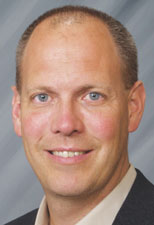 In a person dealing with Alzheimer’s or dementia, seemingly innocent forgetfulness can compound into more serious and often life-threatening lack of judgment or behaviors. It is the progression of memory-related issues that can put one’s life in danger. Forgetting children’s names or a home address appears benign, though through progression of the disease process, an individual may forget a pan on the stove or lose their ability to return home after a shopping trip. Understanding that there is a broad range of issues allows caregivers to monitor safety aspects and modify the individual’s environment to keep them safe. Comfort Keepers strives to keep individuals safe and independent in the comfort of their homes as long as possible. Rick Magill, owner of Comfort Keepers, says, “Providing a Comfort Keeper to care for an individual in their home allows for assistance with activities of daily living around the house, or personal cares as they are needed. Revolving communication between Comfort Keepers care professionals, client’s and/or client families ensures that the client’s needs are being met and when necessary, additional supportive care can be addressed. Each client’s situation is different and recommended care options can include companion cares, personal cares, LifeLine Personal Emergency Response technology or medication dispensing machines to assist clients in taking their medications as directed. In the event Comfort Keepers staff is concerned about the safety of a client, discussions with family members can present other outside options if deemed appropriate.” Comfort Keepers proudly supports teaming with organizations and individuals who are dedicated to preserving dignity and providing care to those with dementia which proves to be a valuable resource to families. Recently, the Omaha/Council Bluffs Comfort Keepers joined forces with Laura Wayman, “The Dementia Whisperer”, to provide free informational speaking engagements for family members dealing with loved ones with dementia and healthcare professionals seeking more understanding of the disease. In addition, several Comfort Keepers employees have been touched by their own personal experiences with family members impaired by dementia issues. Because of this, Comfort Keepers employees exhibit compassionate caring and understanding and remain passionate toward helping others who are faced with a similar journey. Comfort Keepers provides Alzheimer’s and dementia training to all employees upon hire. In addition, over 60% of Comfort Keepers caregivers and Certified Nursing Aides (CNAs) have undergone specialized training to enhance their skill set in working with individuals who deal with these debilitations. Computer training modules include courses that provide understanding of the disease, dealing with depression and challenging behaviors, applying guiding concepts and therapeutic activities, and tips for communicating with Alzheimer’s/dementia clients. It is the goal of Comfort Keepers to certify 100% of employees with this additional Silver and Gold training by the end of 2013.
In a person dealing with Alzheimer’s or dementia, seemingly innocent forgetfulness can compound into more serious and often life-threatening lack of judgment or behaviors. It is the progression of memory-related issues that can put one’s life in danger. Forgetting children’s names or a home address appears benign, though through progression of the disease process, an individual may forget a pan on the stove or lose their ability to return home after a shopping trip. Understanding that there is a broad range of issues allows caregivers to monitor safety aspects and modify the individual’s environment to keep them safe. Comfort Keepers strives to keep individuals safe and independent in the comfort of their homes as long as possible. Rick Magill, owner of Comfort Keepers, says, “Providing a Comfort Keeper to care for an individual in their home allows for assistance with activities of daily living around the house, or personal cares as they are needed. Revolving communication between Comfort Keepers care professionals, client’s and/or client families ensures that the client’s needs are being met and when necessary, additional supportive care can be addressed. Each client’s situation is different and recommended care options can include companion cares, personal cares, LifeLine Personal Emergency Response technology or medication dispensing machines to assist clients in taking their medications as directed. In the event Comfort Keepers staff is concerned about the safety of a client, discussions with family members can present other outside options if deemed appropriate.” Comfort Keepers proudly supports teaming with organizations and individuals who are dedicated to preserving dignity and providing care to those with dementia which proves to be a valuable resource to families. Recently, the Omaha/Council Bluffs Comfort Keepers joined forces with Laura Wayman, “The Dementia Whisperer”, to provide free informational speaking engagements for family members dealing with loved ones with dementia and healthcare professionals seeking more understanding of the disease. In addition, several Comfort Keepers employees have been touched by their own personal experiences with family members impaired by dementia issues. Because of this, Comfort Keepers employees exhibit compassionate caring and understanding and remain passionate toward helping others who are faced with a similar journey. Comfort Keepers provides Alzheimer’s and dementia training to all employees upon hire. In addition, over 60% of Comfort Keepers caregivers and Certified Nursing Aides (CNAs) have undergone specialized training to enhance their skill set in working with individuals who deal with these debilitations. Computer training modules include courses that provide understanding of the disease, dealing with depression and challenging behaviors, applying guiding concepts and therapeutic activities, and tips for communicating with Alzheimer’s/dementia clients. It is the goal of Comfort Keepers to certify 100% of employees with this additional Silver and Gold training by the end of 2013.
The Home Instead Senior Care network also provides training on Alzheimer’s and dementia care to all of their CAREGivers as standard practice. This ensures that CAREGivers are able to manage behaviors, encourage engagement, assist with activities of daily living, keep seniors safe, and provide support for the family. Toni Schmitt of Home Instead Senior Care says, “Home Instead Senior Care prides itself on being a leader in non-medical services with over 950 offices and 65,000 CAREGivers worldwide. As we were founded in Omaha in 1994, Home Instead Senior Care has deep roots in the Omaha community with an impeccable reputation for excellent service and a genuine passion for providing quality care. Our CAREGivers are caring, compassionate, reliable, trustworthy, and have a true desire to help others. All of our CAREGivers have been thoroughly screened, trained, bonded, and insured, and our staff personally matches each client with a CAREGiver. Our services can be arranged for as little as three hours, or as many as 24 hours a day. We would be honored to provide a complimentary care consultation to go over our services in depth to anyone that is interested and explain how Home Instead Senior Care provides an affordable solution for individuals who could use some additional assistance with things such as companionship, meal preparation, personal services (bathing, dressing, etc.), respite, light housework, laundry, and transportation to appointments or running errands. Our services are designed to help individuals who desire to remain independent in their own home, wherever home may be. We also feel it is very important to provide support and resources to families, including our Confidence to Care at home kit (visit ConfidenceToCare.com to obtain), Alzheimer’s & Other Dementias Daily Companion Mobile App (go to App.ConfidenceToCare.com to download), and HelpforAlzheimersFamilies.com. This provides family caregivers and family members coping with their loved one’s decline in memory capabilities in-depth information, helpful tips, and connects them to additional memory care resources.”
Impact of Dementia and Alzheimer’s Disease on Caregivers
- In 2012, 15.4 million family and friends provided 17.5 billion hours of unpaid care to those with Alzheimer’s and other dementias — care valued at $216.4 billion, which is more than eight times the total sales of McDonald’s in 2011. Eighty percent of care provided in the community is provided by unpaid caregivers.
- Nearly 15 percent of caregivers are long-distance caregivers, living an hour or more away from their loved ones. Out-of-pocket expenses for long-distance caregivers are nearly twice as much as local caregivers.
- More than 60 percent of Alzheimer’s and dementia caregivers rate the emotional stress of caregiving as high or very high; more than one-third report symptoms of depression. Due to the physical and emotional toll of caregiving, Alzheimer’s and dementia caregivers had $9.1 billion in additional health care costs of their own in 2012.
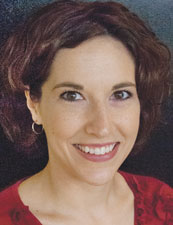 In the beginning of dementia, it is very scary and most people know what is going to happen to them. It usually brings on anxiety, depression and aggressive behaviors because that person does not want other people reminding them what to do or how to do it. There are many different types of dementia and it is important to get the proper diagnosis from your doctor so you can be better informed of the possible medications to help and the expected stages to come. Mindy Crouch of Pando Geriatrics says, “Caregiving for a person with dementia is very time consuming and can cause high burn out and relationship problems in the family. Mental Health Therapy is helpful, not only for those in the first few stages of dementia, but to educate the family on why that family member is acting the way they are and better ways to interact and talk to that person. We can also offer support and give the caregivers a chance to vent and let someone objective listen to them. There are many people going through this and it is helpful to find people that can understand and offer support. You are not alone. It is okay to ask for help and to get help. It does not mean that you are weak or don’t care.” She adds, “Whether you have dementia or not, it is always best to talk to you loved ones about your wishes as you get older. Even if you don’t want to leave your home or go to a nursing home, these options still need to be discussed. It is recommended that all wishes and back up plans be discussed while everyone is in good health. Once a crisis arrives, it is very chaotic and is stressful to make decisions for loved ones when you are not sure what they want. This can increase burnout because family members tend to disagree when the loved one’s wishes are not known.”
In the beginning of dementia, it is very scary and most people know what is going to happen to them. It usually brings on anxiety, depression and aggressive behaviors because that person does not want other people reminding them what to do or how to do it. There are many different types of dementia and it is important to get the proper diagnosis from your doctor so you can be better informed of the possible medications to help and the expected stages to come. Mindy Crouch of Pando Geriatrics says, “Caregiving for a person with dementia is very time consuming and can cause high burn out and relationship problems in the family. Mental Health Therapy is helpful, not only for those in the first few stages of dementia, but to educate the family on why that family member is acting the way they are and better ways to interact and talk to that person. We can also offer support and give the caregivers a chance to vent and let someone objective listen to them. There are many people going through this and it is helpful to find people that can understand and offer support. You are not alone. It is okay to ask for help and to get help. It does not mean that you are weak or don’t care.” She adds, “Whether you have dementia or not, it is always best to talk to you loved ones about your wishes as you get older. Even if you don’t want to leave your home or go to a nursing home, these options still need to be discussed. It is recommended that all wishes and back up plans be discussed while everyone is in good health. Once a crisis arrives, it is very chaotic and is stressful to make decisions for loved ones when you are not sure what they want. This can increase burnout because family members tend to disagree when the loved one’s wishes are not known.”
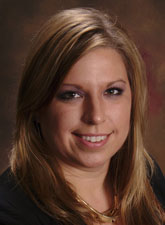 Kristina Krumme of Elk Ridge Village agrees that it is difficult to discuss care options for the future, but making the decision to move to a memory care of assisted living/retirement community before the disease progresses too far is best because the transition will get increasingly more difficult for everyone the longer you wait. Elk Ridge Village offers an Alzheimer’s support group that meets on the third Monday of every month, and provides specially trained staff members in addition to their licensed nursing staff and broad physician base. Krumme says, “At Elk Ridge, we promote health, wellness, safety and education. Our staff supports all of these goals, and we work together with your family to ensure all bases are covered.” She adds, “It is very important to get a health care and financial Power of Attorney in place before your loved one is unable to make those decisions. It is also a good idea to look into Long Term Care insurance before the diagnosis and learn the signs and symptoms so that you can recognize any changes as soon as possible.”
Kristina Krumme of Elk Ridge Village agrees that it is difficult to discuss care options for the future, but making the decision to move to a memory care of assisted living/retirement community before the disease progresses too far is best because the transition will get increasingly more difficult for everyone the longer you wait. Elk Ridge Village offers an Alzheimer’s support group that meets on the third Monday of every month, and provides specially trained staff members in addition to their licensed nursing staff and broad physician base. Krumme says, “At Elk Ridge, we promote health, wellness, safety and education. Our staff supports all of these goals, and we work together with your family to ensure all bases are covered.” She adds, “It is very important to get a health care and financial Power of Attorney in place before your loved one is unable to make those decisions. It is also a good idea to look into Long Term Care insurance before the diagnosis and learn the signs and symptoms so that you can recognize any changes as soon as possible.”
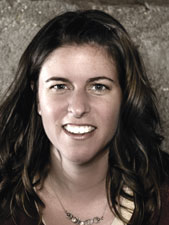 Michaela Williams of Care Consultants adds that if you can get your affairs together legally and financially you will have more options in choosing the care you want. In reality, there is not one company or option that fits every healthcare need as we age. Because everyone’s needs are different and they change, it is important to have an awareness of available senior services. She advises to plan ahead for what “may happen” as it will help in the event of a crisis. Care Consultants produces an ElderCare Resource Handbook for both the Omaha and Lincoln areas. The handbook will offer a complete listing of senior services and is available online or in print. More information can be found at www.careconsultants.com or 402-398-1848. Williams adds, “We have a list of caregivers that have been through our screening process, two interviews, carry liability insurance and have a surety bond. Care Consultants will schedule the caregiver(s) as little or as often as needed. Realizing that health care needs happen at all hours; we are available 24/7 to assist with any scheduling needs that occur. If you are caring for a loved one, it is extremely important to give yourself breaks. Although asking for help can be hard, the reality is that burning out will cause more issues and stress. Many times our services have ended up being needed more for the caregiver of someone with memory problems because they stop taking care of themselves. When taking care of someone with memory issues, the journey can be long and evolve as time passes. Getting support services in place sooner rather than later will help in maintaining a better quality of life.”
Michaela Williams of Care Consultants adds that if you can get your affairs together legally and financially you will have more options in choosing the care you want. In reality, there is not one company or option that fits every healthcare need as we age. Because everyone’s needs are different and they change, it is important to have an awareness of available senior services. She advises to plan ahead for what “may happen” as it will help in the event of a crisis. Care Consultants produces an ElderCare Resource Handbook for both the Omaha and Lincoln areas. The handbook will offer a complete listing of senior services and is available online or in print. More information can be found at www.careconsultants.com or 402-398-1848. Williams adds, “We have a list of caregivers that have been through our screening process, two interviews, carry liability insurance and have a surety bond. Care Consultants will schedule the caregiver(s) as little or as often as needed. Realizing that health care needs happen at all hours; we are available 24/7 to assist with any scheduling needs that occur. If you are caring for a loved one, it is extremely important to give yourself breaks. Although asking for help can be hard, the reality is that burning out will cause more issues and stress. Many times our services have ended up being needed more for the caregiver of someone with memory problems because they stop taking care of themselves. When taking care of someone with memory issues, the journey can be long and evolve as time passes. Getting support services in place sooner rather than later will help in maintaining a better quality of life.”
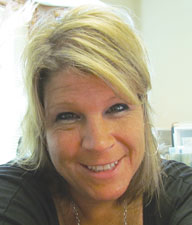 Alzheimer’s or any other form of dementia can only be specifically diagnosed through an autopsy of the brain, which is why treatment is problematic. What we do know is that every person that has been diagnosed with some form of dementia must be treated as an individual, as each person will have different symptoms, triggers and reactions to different situations. Lisa Arp of SilverRidge Assisted Living & Memory Support says, “A structured environment is key to quality and longevity of life. At SilverRidge in Gretna we have two cottages that are secured for folks with dementia. Each cottage, or large home, has 14 studio apartments that are approximately 400 square ft. They are not double occupied; all have a bathroom with a vanity and an armoire for clothing instead of a closet. Every resident is on the same level of care, some just need more assistance than others as the disease progresses. No resident dresses, bathes, uses the bathroom, or performs any other difficult activities of daily living alone. There is always a stand by assist by a Medication Aide or Nurse Aide. There are motion sensors in the entrance and on the ceiling of their room as well as the entrance to their bathroom. If needed, we also provide sensors for their beds for incontinence and motion just in case they are major fall risks. In our experience at SilverRidge, the more structured the environment, the less the agitation and the better quality of life for the resident. We have residents that have lived in our memory units since we opened and that is going on 8 years ago.” She adds, “Early detection is crucial to providing adequate care for those with dementia. November 19th is National Screening Day initiated by the Alzheimer’s Foundation of America. SilverRidge will be a site for screening on that date from 9 a.m. to 6 p.m. For more information go to www.nationalmemoryscreening.org or call me at 402-332-4280.”
Alzheimer’s or any other form of dementia can only be specifically diagnosed through an autopsy of the brain, which is why treatment is problematic. What we do know is that every person that has been diagnosed with some form of dementia must be treated as an individual, as each person will have different symptoms, triggers and reactions to different situations. Lisa Arp of SilverRidge Assisted Living & Memory Support says, “A structured environment is key to quality and longevity of life. At SilverRidge in Gretna we have two cottages that are secured for folks with dementia. Each cottage, or large home, has 14 studio apartments that are approximately 400 square ft. They are not double occupied; all have a bathroom with a vanity and an armoire for clothing instead of a closet. Every resident is on the same level of care, some just need more assistance than others as the disease progresses. No resident dresses, bathes, uses the bathroom, or performs any other difficult activities of daily living alone. There is always a stand by assist by a Medication Aide or Nurse Aide. There are motion sensors in the entrance and on the ceiling of their room as well as the entrance to their bathroom. If needed, we also provide sensors for their beds for incontinence and motion just in case they are major fall risks. In our experience at SilverRidge, the more structured the environment, the less the agitation and the better quality of life for the resident. We have residents that have lived in our memory units since we opened and that is going on 8 years ago.” She adds, “Early detection is crucial to providing adequate care for those with dementia. November 19th is National Screening Day initiated by the Alzheimer’s Foundation of America. SilverRidge will be a site for screening on that date from 9 a.m. to 6 p.m. For more information go to www.nationalmemoryscreening.org or call me at 402-332-4280.”
Among all of the other resources we have mentioned, The Alzheimer’s Organization is also an excellent source of information. Their toll free helpline, (800) 272-3900, is available 24/7 and it is always staffed by people who can answer any question, big or small, or get you in touch with local resources to help as well as providing respite grants for caregivers. The Alzheimer’s Organization website, alz.org, also offers a wealth of amazing resources. There are plenty of community resources that offer assistance specifically for memory-related issues. Not just for those with Alzheimer’s or dementia; but family, friends and caregivers as well. Aging is unavoidable and unfortunately we all will not age the same way, but knowing that your loved ones wishes are being honored and they are receiving the best care possible certainly eases the difficulty of accepting these changes. Building a care team or developing your own network of helpers is crucial to meeting the challenges ahead with strength and confidence.

